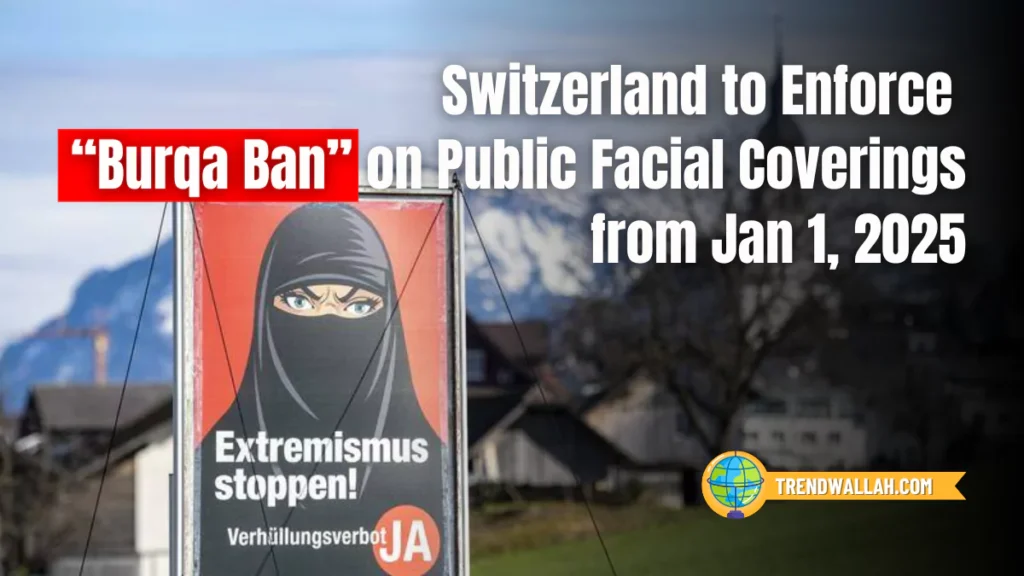
Switzerland Burqa Ban – Switzerland’s ban on facial coverings in public spaces, widely referred to as the “burqa ban,” is set to take effect on January 1, 2025. Approved through a tight referendum in 2021, this law restricts face coverings in most public spaces, with fines up to 1,000 Swiss francs ($1,144) for violations. The law has faced criticism from Muslim associations, which argue it unfairly targets Muslim women.
Background: The 2021 Referendum Approval
In 2021, Swiss voters narrowly approved the measure, introduced by the same group behind Switzerland’s 2009 minaret ban. The Federal Council confirmed the start date for the law, stating it supports Switzerland’s values of neutrality, public security, and social order.
Key Rules of the Facial Covering Ban
- Public Spaces: The law applies to most public areas, prohibiting facial coverings like burqas and niqabs.
- Fine: Individuals found in violation can be fined up to 1,000 Swiss francs.
Exceptions to the Ban on Public Facial Coverings
There are several exceptions where facial coverings remain permitted:
- Health and Safety: Masks can still be worn for health-related purposes.
- Cultural and Religious Sites: Coverings are allowed in religious places like mosques and churches.
- Artistic and Entertainment Uses: Coverings are permitted for art, performances, or advertising purposes.
- Expression and Assembly: With prior approval, coverings for personal protection related to freedom of expression and peaceful assembly are allowed.
Key Provisions of Switzerland Burqa Ban
| Provision | Description |
| Fine | Up to 1,000 Swiss francs ($1,144) for violators |
| Public Spaces | Facial coverings banned in most public areas |
| Health and Safety | Coverings allowed for health, safety, or weather conditions |
| Religious Sites | Permitted in religious or sacred places |
| Art and Entertainment | Allowed for performances and advertising |
| Freedom of Expression | Permitted with prior approval if linked to peaceful expression or assembly |
Opposition from Muslim Associations
Muslim organizations have strongly opposed the ban, arguing it restricts individual freedom and disproportionately impacts Muslim women who choose to wear face coverings. Critics view the ban as an infringement on religious and personal freedoms.
Switzerland Burqa Ban Summary
- Ban Begins: Switzerland’s “burqa ban” takes effect January 1, 2025.
- Referendum Approval: Approved by voters in 2021, it restricts facial coverings in public.
- Exceptions Included: Permits coverings for health, safety, religious sites, and artistic uses.
- Fine: Violators can face fines up to 1,000 Swiss francs.
- Criticism: Opposed by Muslim groups citing freedom and rights concerns.
Also Read Latest Current Affairs 2024
FAQs on Switzerland Burqa Ban
The ban takes effect on January 1, 2025.
Violators may be fined up to 1,000 Swiss francs ($1,144).
Yes, exceptions include health and safety needs, religious places, and artistic or entertainment purposes
The ban was initiated by a group advocating for social order and neutrality, with the goal of reducing full-face coverings in public
No, the law applies to all facial coverings in public, although it primarily affects items like burqas and niqabs.
Yes, coverings are allowed in religious or sacred places
The ban was narrowly approved in a 2021 referendum.
